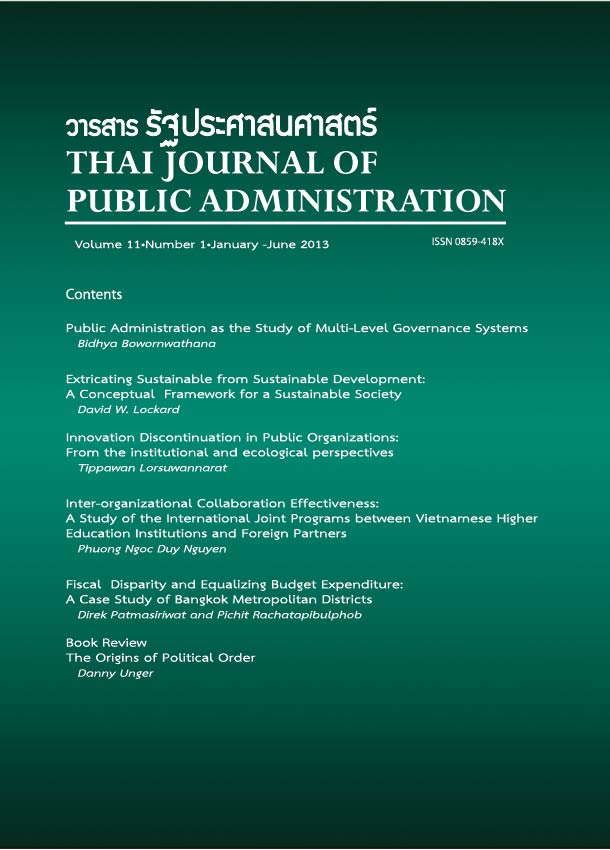Fiscal Disparity and Equalizing Budget Expenditure: A Case Study of Bangkok Metropolitan Districts
Keywords:
tax disparity, equalization budget allocation, Theil inequality index, property tax, Bangkok Metropolitan DistrictsAbstract
This paper takes a case study of Bangkok Metropolitan Administration district finance and budget allocation and tests two hypotheses: [A] that the capabilities to collect taxes & fees between 50 districts varied significantly; [B] that the BMA allocates budget for districts in accordance with “equalization” criterion with the result that the expenditure per capita is less unequal. The authors compile BMA data from 50 districts over the period 1999-2009 and calculates inequality indice for both per capita revenue- and expenditure and observes their changes over time. Our findings indicate that the inequality measures on revenue side ranged 0.4 – 0.5 whereas the expenditure inequality measures much less (0.04) with no apparent trend. The last section performs a simulation exercise by assuming that the property tax were adopted in place of the taxation based on rental value of house and building and notices the effects of revenue and fiscal disparity. First, an increase in the locally collected revenue by approximately 45 percent; b) tax disparity significantly lessened, measured by inequality from 0.59 to 0.32. The tax gain is mainly caused by the reduction of tax exemption and that the tax base for all districts would be proportionately enlarged.



